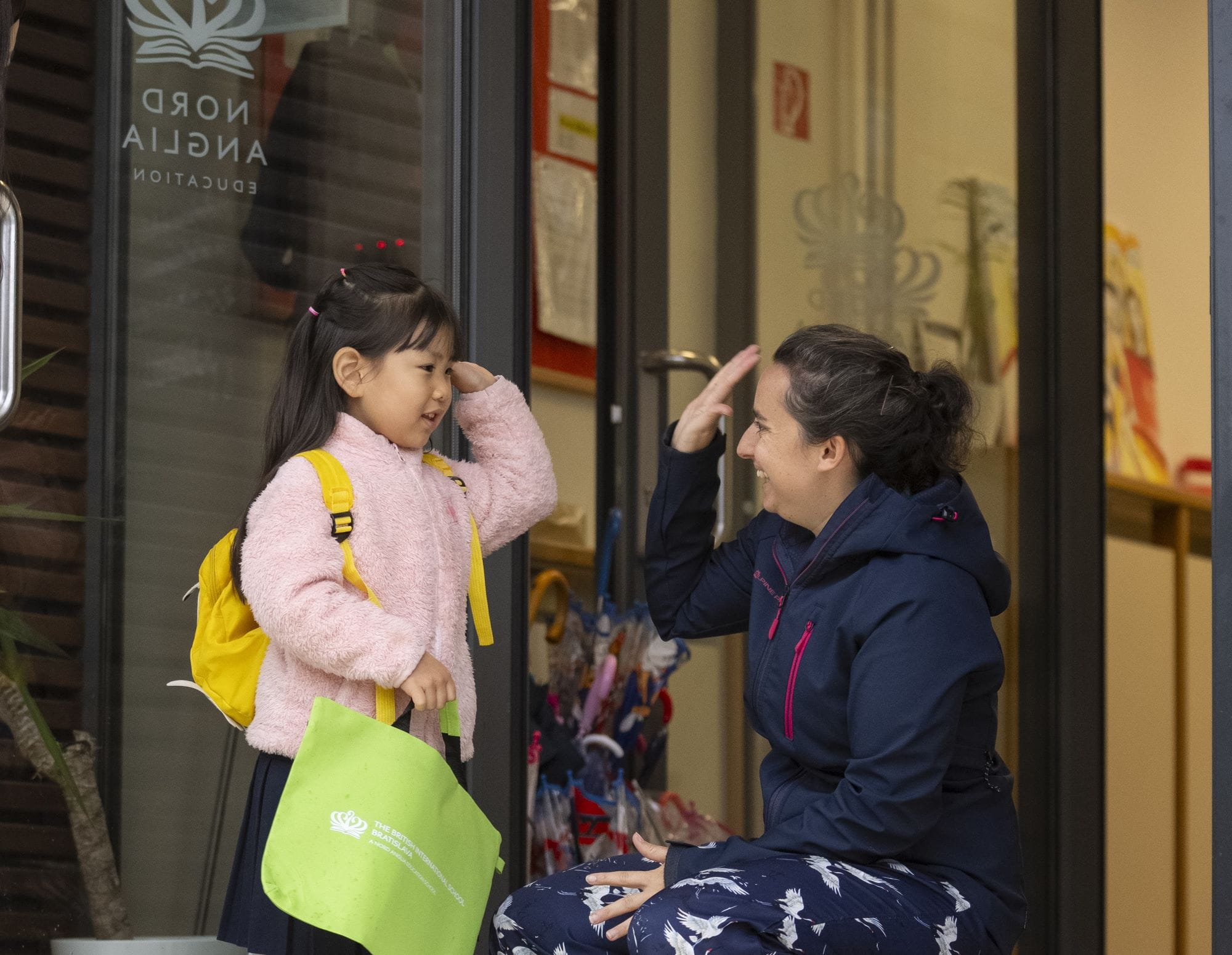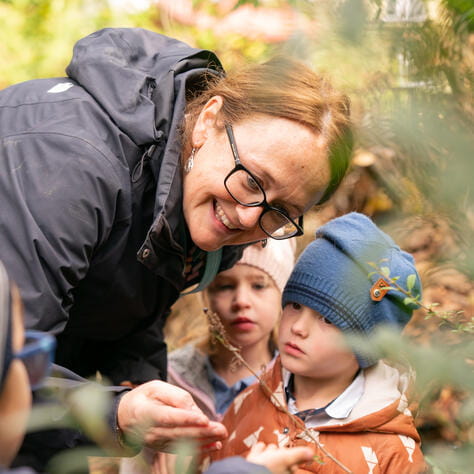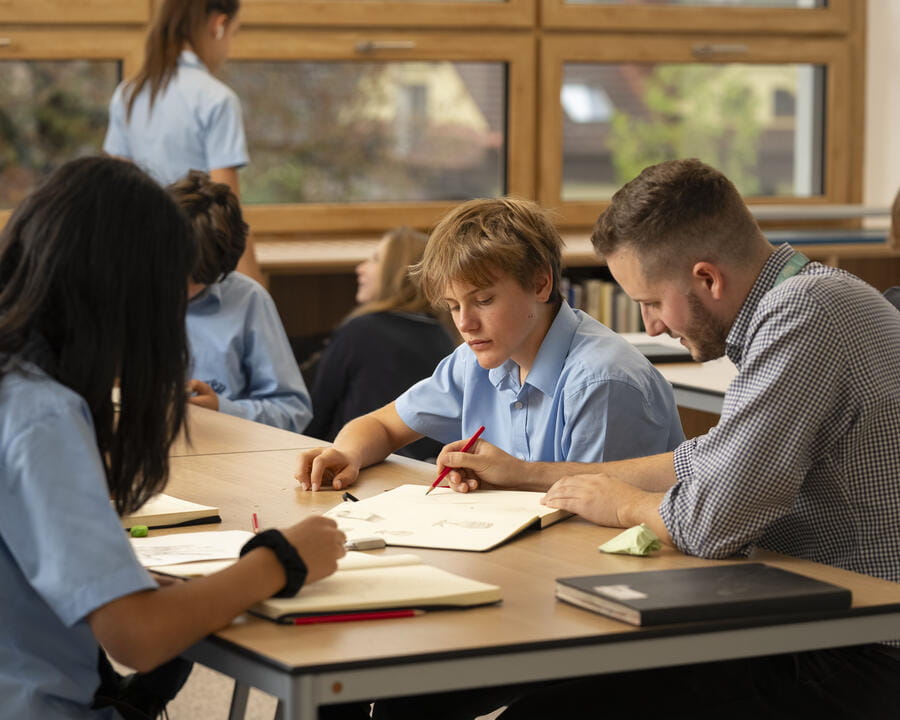ENTRY REQUIREMENTS FOR EACH YEAR GROUP
Nursery to Year 6
- We’re open to children who don’t speak English up to Year 6.
- Our average class size is 20.
- We offer nursery education to children aged from 2 to 4 years old. Children can join at any time in the school year, provided we have places available.
- Children can join our reception class if they turn 4 before the start of a new school year (1st September). Children who celebrate their fourth birthday after 1st September will remain in our nursery class for a further full school year before starting in reception.
- Nursery parents can choose full-time attendance from 8:05 am-3:00 pm (plus our optional after-school care Rockets Club until 5:00 pm) or part-time, 50% attendance.
Years 7 to 9
- We assess our students' ability in English.
- Our average class size is 20.
Years 10 to 11
- Students need to be proficient English speakers. We also assess our students' ability in maths.
- Our average class size in Year 10 is 20.
- Our average IB Diploma subject group size is 15.
Year groups
Our students thrive when they learn alongside children their own age, which is why we keep children in their correct age groups. The exception is when a student in Year 10 or above can't complete either the IGCSE or International Baccalaureate Diploma Programme (IBDP) because they aren't fluent English speakers.
Student Date of Birth | Year | Stage |
1/9/2021 to 31/8/2023* | Nursery* | Foundation Stage |
1/9/2020 to 31/8/2021 | Reception | Foundation Stage |
1/9/2019 to 31/8/2020 | Year 1 | Key Stage 1 |
1/9/2018 to 31/8/2019 | Year 2 | Key Stage 1 |
1/9/2017 to 31/8/2018 | Year 3 | Key Stage 2 |
1/9/2016 to 31/8/2017 | Year 4 | Key Stage 2 |
1/9/2015 to 31/8/2016 | Year 5 | Key Stage 2 |
1/9/2014 to 31/8/2015 | Year 6 | Key Stage 2 |
1/9/2013 to 31/8/2014 | Year 7 | Key Stage 3 |
1/9/2012 to 31/8/2013 | Year 8 | Key Stage 3 |
1/9/2011 to 31/8/2012 | Year 9 | Key Stage 3 |
1/9/2010 to 31/8/2011 | Year 10 | Key Stage 4 |
1/9/2009 to 31/8/2010 | Year 11 | Key Stage 4 |
1/9/2008 to 31/8/2009 | Year 12 | International Baccalaureate |
1/9/2007 to 31/8/2008 | Year 13 | International Baccalaureate |
*Nursery - we accept children to Nursery class when they turn 2 years (24 months). They can start during the whole school year. Depending on their age, they can spend one or two years in the Nursery class. Only children turning 4 years old before 1st September 2025 will move up to the Reception class.
Class structure
Where there are two or more classes in a year group, we try to achieve a balance of students. We consider the following factors: language experience, nationality, ability, and gender. Parents can express their preference; however, the final decision is down to the school.




